skilpod.com / blog
news — Trends Magazine — industrial building for your home
In its factory hall in Geel, Skilpod builds turnkey homes for individuals. Mass production of a limited number of standard models is sustainable and keeps the price low. "I was amazed at how slow and expensive the building process was. Surely there had to be a better way to do that."
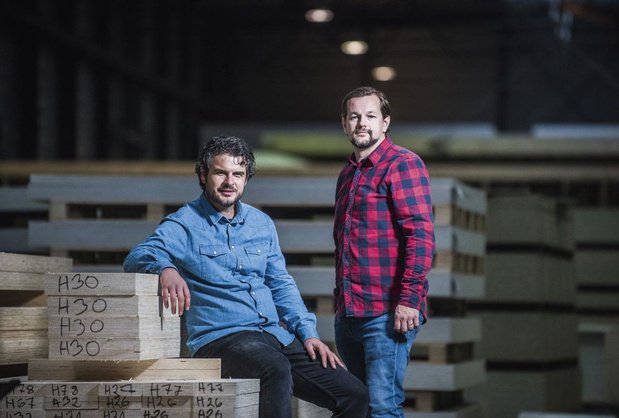
Industrial construction for your home
From Trends Magazine 25/11/2021
Filip Timmermans worked in manufacturing until he founded Skilpod in 2013. When he wanted to build a house himself, he had encountered heavy administrative and technical obstacles. "I was baffled by how slow and expensive the construction process was," he explains. "Surely there had to be a better way to do that.
So I started a construction company with an industrial philosophy." Timmermans found a partner in his friend Jan Vrijs, who until then was a lawyer. Skilpod builds parts of houses in its factory in Geel, assembles them into a house, transports it to the building site and places the structure on a foundation that was prepared in advance. The construction process takes about two months, and installation is done in one day. "Other construction companies also make elements in advance, but assemble them at the construction site," says Timmermans. "We deliver turnkey. With us, you have no work stoppage due to rain or snow. And we continue to produce during construction leave."
Until recently, Skilpod was still making custom projects. "By limiting ourselves to a few standardized models, we can work faster and reduce the price," says Timmermans. "That fits in within the trend that is underway in Flanders from the home as a status symbol to a home that supports the lifestyle and still leaves room for other expenses."
The name Skilpod is a contraction of "skill" and "pod," a technical term for a movable unit. Skilpad is South African for "turtle," the company's symbol. "Just like a turtle, the buyer can take their home from one place to another," Timmermans explains.
Business-to-consumer
Before the pandemic, Skilpod carried out large orders for 60-square-meter units for Dutch housing corporations. "Due to the uncertain economic and financial factors, large orders were put on hold," says Vrijs, who is primarily concerned with the commercial side of Skilpod. "The future of the fifty employees was hanging by a thread. Only a rapid commercial conversion could save us. From business-to-business we evolved to business-to-consumer. Many families have capital that they want to invest in a comfortable home."
Skilpod will henceforth focus only directly on the prospective buyer. "We are evolving into the housing factory for private owners," states Timmermans. The company is marketing only eight types of houses. All the pipes are in place and the household appliances are of standard quality. The buyer can only choose the flooring and the color of the finishings. Changing a faucet or adding an extra outlet, for example, is not possible. The only extra options the buyer can take are a carport, solar panels and a storage shed.
Isn't it a disadvantage that the choice is limited for the customer? "The choices we make for buyers are well thought out. We save them from a lot of headaches," says Timmermans. "Also, the optimal use of space has been meticulously studied by our architects. We have never received any complaints afterward."
Timmermans makes the comparison with the automotive sector, where he once worked. "The number of options on a car is limited, but all products have nice gadgets. We offer the best, but always standard. Our engineering is more profitable than that in traditional construction. Product-oriented thinking has not yet really penetrated there. Large-scale industrial construction is only done for project developers. Industrial construction of individual homes for the private market is, to my knowledge, not found anywhere else in Europe."
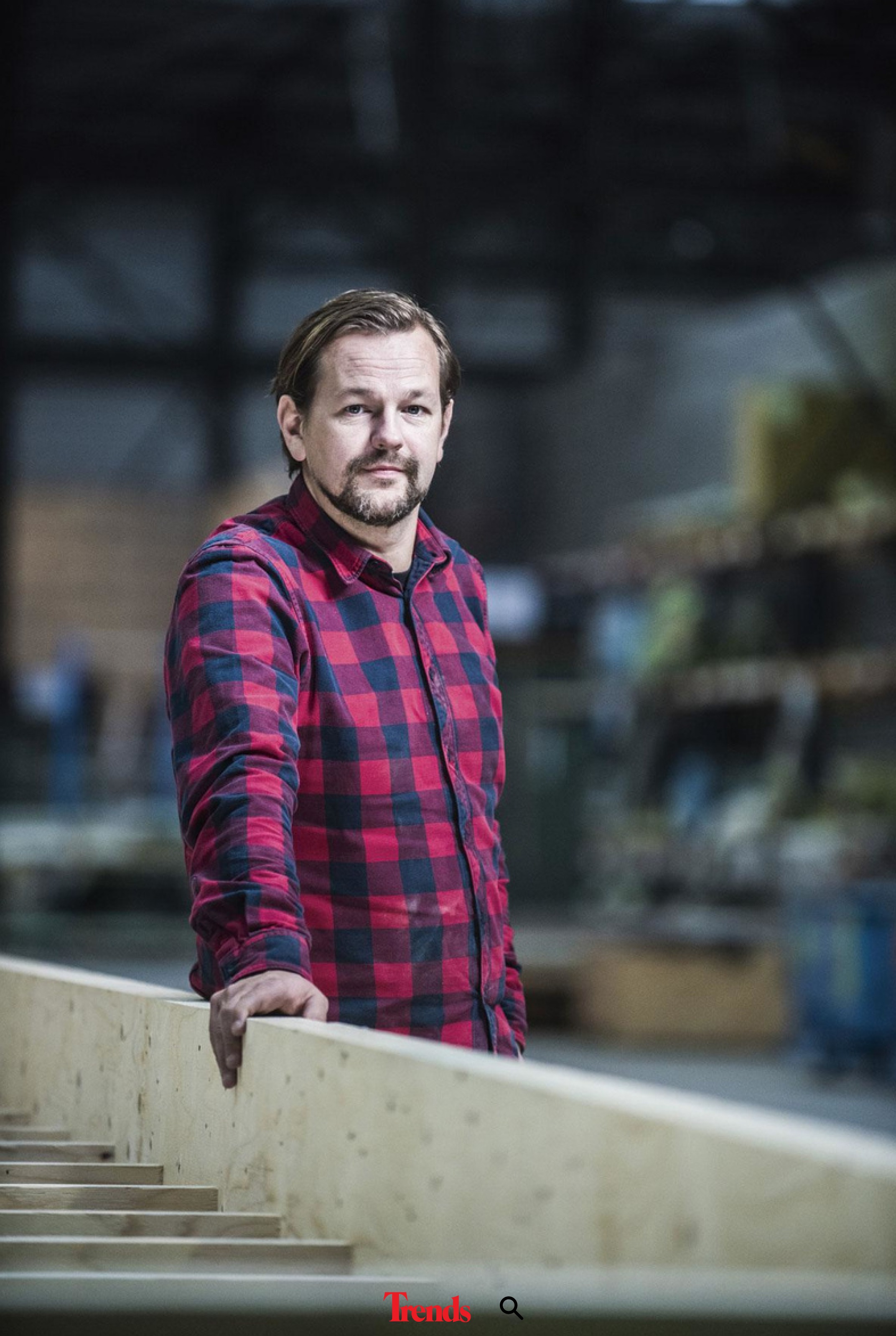
Zero margin of error
Skilpod can produce more cheaply because the house doesn't have to be modified constantly to the customer's size. It can quickly incorporate new construction techniques or custom building standards on a large scale. It can also work much more precisely in its own workshops than in the harsh conditions of an outside building site. What's more, the company gains a lot of experience in producing each model. Timmermans: "The margin of error is almost zero. When building a private home, there is often a 15 percent margin of error. That is a pure loss, which has to be compensated. So not only do we build faster, we also build about 10 percent cheaper."
The price of the houses ranges from 156,000 euros for a two-bedroom house of 91 square meters to 224,000 euros for a three-bedroom house of 144 square meters with an extra floor, excluding VAT. The price of the foundation is included, unless heavy stabilization work is required. If necessary, Skilpod also advises on the purchase of land. "For those who have a building plot, we can install the house in a few weeks after obtaining the permit," says Timmermans. "The customer knows perfectly what to expect. The biggest problem is the installation of the utilities. Electric, gas and water companies are used to working on a longer time frame than a few weeks. They'll catch up once industrial construction becomes the trend."
More sustainable than classic
Timmermans points out that project construction is more sustainable than classic construction. And new construction is in itself more sustainable than renovation, because it immediately meets all environmental standards. In addition, the finishing in the factory means less transportation to and from the construction site. Skilpod's houses are built with laminated veneer lumber, a material made up of layers of wood. "Construction with concrete and cement causes huge CO2 emissions," Timmermans knows. "Whereas wood has absorbed CO2 before it is processed. And every tree we process is replaced by another." The base material is produced in Finland on behalf of Skilpod. That customization reduces waste and transportation costs, and thus the production price. However, wood has cost twice as much since last year, making houses 10 percent more expensive.
Skilpod sold 80 houses in Belgium this year. In the start-up phase, sales amounted to 10 million euros. Next year it is aiming for 15 million. The company is investing 3 million euros in a new production capacity and staff. The capital of Wolfe, Skilpod's operating company, will therefore be increased from 90,000 to 1.5 million euros. ING and PMV are providing external capital. The Kempen construction company Groep Van Roey will take a 20 percent stake in the company, as will Limburg businessman Ismaël Ben-Al-Lal (iLumen and Futech). Timmermans and Vrijs share the rest of the shares.
Providing services
Timmermans also wants to call on the strategic know-how of his financial partners. Skilpod will eventually not only sell housing units, but also services related to living. For example, it wants to provide maintenance and sustainable energy for public-private partnership projects. Van Roey is already strong in design, construction, maintenance and financing projects for the government, for example for swimming pool infrastructure. Ben-Al-Lal's companies provide solar panels and energy technology.
"Municipal governments are looking for new formulas to keep housing affordable," says Vrijs. "We can offer homes that fit that philosophy. Our new shareholders are strong in support services. A great combination."
Published: 25 November 2021
more Skilpod news
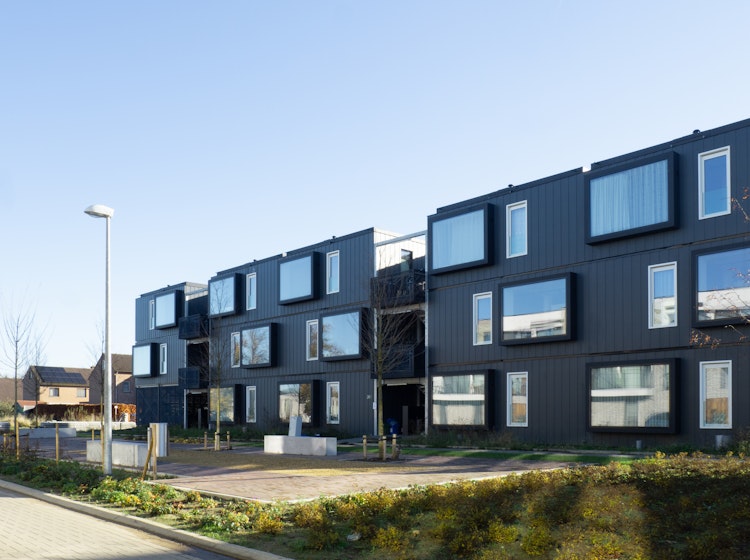
news — Skilpod selected for framework contract Wonen in Vlaanderen 2023With the Wonen in Vlaanderen 2023 project, the Flemish government is providing more than a billion euros for the social rental market.
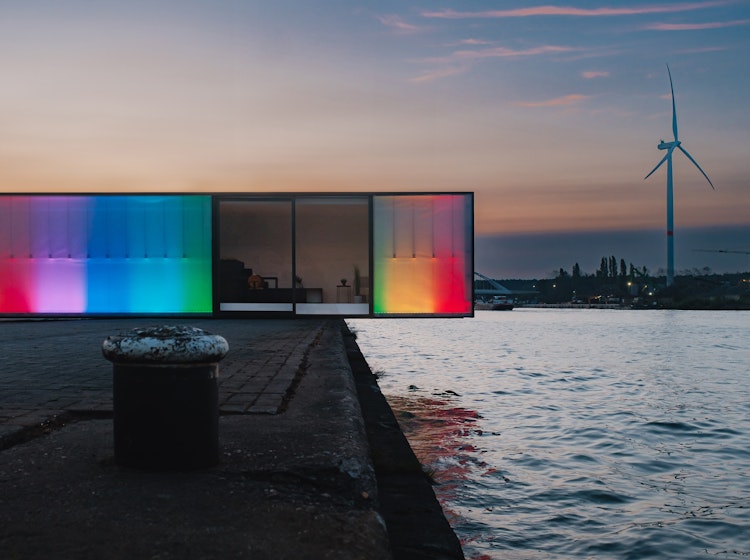
news — Skilpod lands capital increase of 11 million eurosWith this substantial capital investment of 11 million euros, Skilpod is ready for the next chapter in our story.
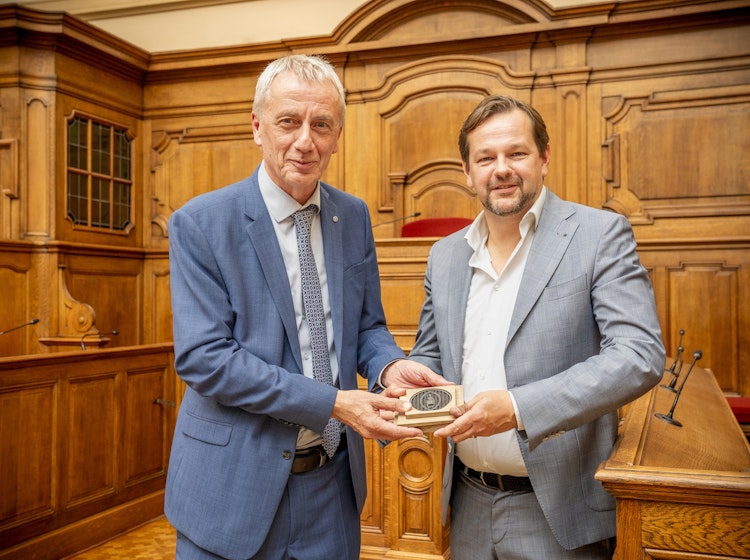
nieuws — Filip Timmermans krijgt erepenning KU LeuvenOur founder Filip Timmermans received a university medal of honor from KU Leuven. His life's work as a visionary in modular construction played a crucial role.